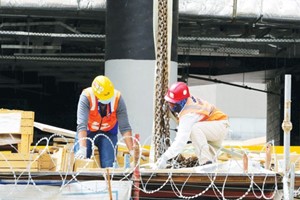On June 19, 2023, Saudi Arabia enacted the Civil Transactions Law, also known as the "Civil Code," through a royal decree. This landmark legislation, which took effect on December 16, 2023, aims to consolidate the Kingdom's regulations concerning contract and property rights into 721 articles.
Before the introduction of the Civil Code, Saudi Arabia primarily operated under an uncodified system of Shariah law. Thus, the implementation of these new laws signifies a significant shift in the country's legal framework.
The Civil Code comprises three main parts, focusing on contractual obligations, specifically designated "nominate" contracts, and rights in rem (property rights), with priority given to application. Additionally, a final section includes 41 general rules inspired by Shariah principles, applicable in the absence of specific provisions elsewhere. Shariah law provisions remain applicable where deemed most suitable.
Application
The Civil Code applies retrospectively, except in cases where its application contradicts another statutory provision or judicial principle, or where a limitation period for a right has already commenced before December 16, 2023.
Construction Projects
Articles 461 to 478 of Part 2 of the Civil Code address Muqawala contracts, which pertain to construction or work performance. These provisions hold particular significance for Saudi Arabia's extensive giga-project program, encompassing diverse tourism, residential, commercial, retail, and industrial capital projects.
Contractor Obligations
According to the Civil Code, contractors must ensure that provided work materials comply with agreed technical specifications or are at least suitable for their intended purpose. They are also obliged to protect employer-provided materials and may be liable for third-party corrections or completions if they fail to fulfill contract terms.
Employer Responsibilities
Employers must promptly accept completed work, and unjustified rejections may absolve contractors from subsequent damage claims. The code also addresses unit price and lump sum contracts, outlining procedures for variations and unforeseen circumstances that impact contractual balance.
Subcontracting
Main contractors can subcontract work unless prohibited by law, agreement terms, or other circumstances. However, they remain liable to the employer, and subcontractors have no direct claims unless assigned by the main contractor.
Termination
The Civil Code allows termination of Muqawala contracts under various circumstances, including completion of work, impossibility due to external factors, contractor incapacity, or contractor's death if their involvement is crucial to the contract.
Conclusion
Both contractors and employers involved in Saudi Arabian construction projects must adhere to the Civil Code's provisions. These rules apply to existing and future contracts, promoting industry certainty. The establishment of a Commercial Transactions Law to regulate business conduct alongside the Civil Code reflects Saudi Arabia's commitment to fostering a conducive environment for giga-projects and broader business activities.
By Christopher Edwards & Joy-Emma Martin













